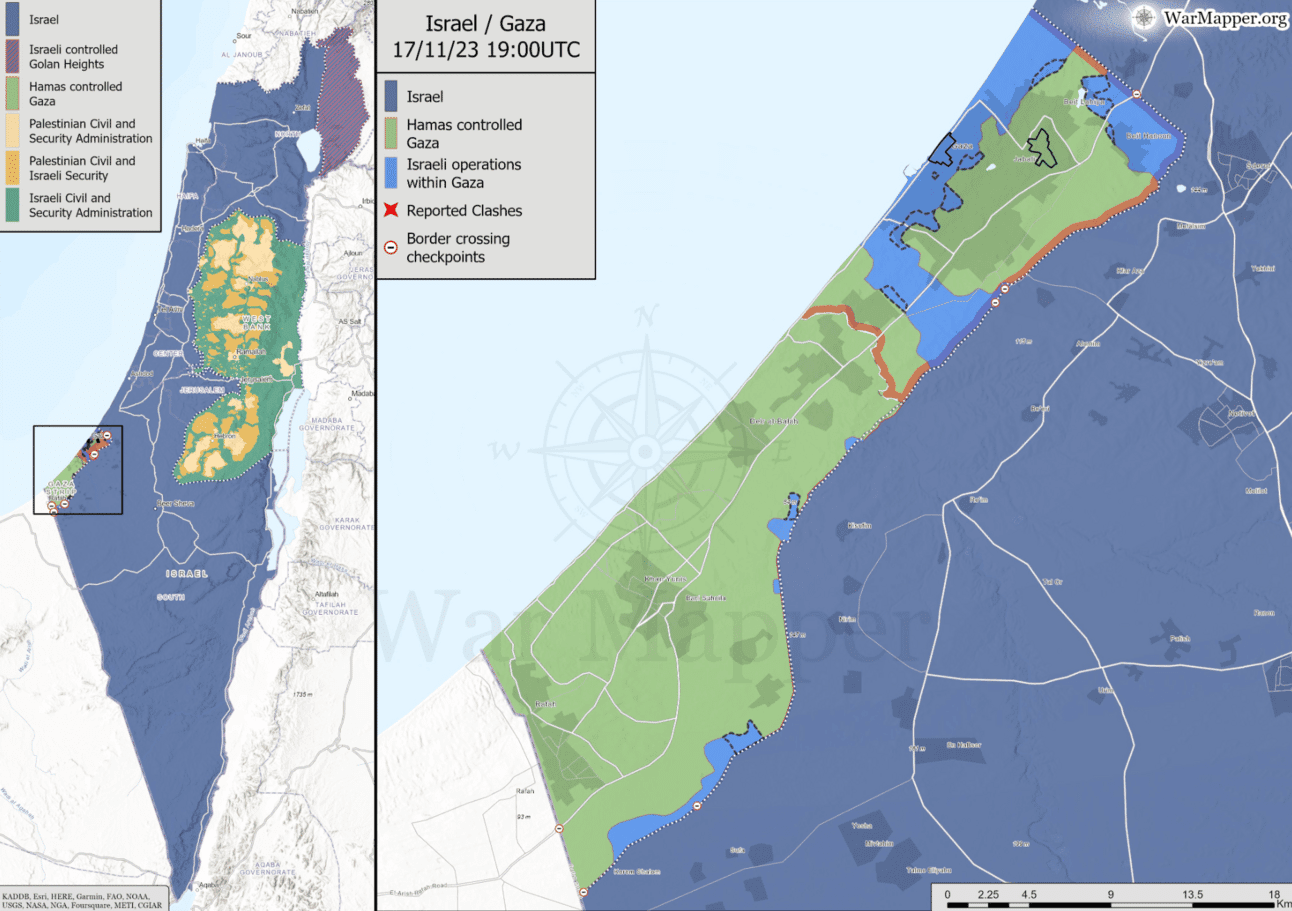Hamas may soon agree to release 50-100 women and children being held as hostages in Gaza, according to Israeli, Qatari, and American officials.
In exchange,Hamas wants Israel to:
- Pause combat operations for five days (including daily six-hour air surveillance pauses to allow Hamas to relocate hostages without the watchful eye of Israeli drones)
- Facilitate fuel transfers from the Rafah border crossing in southern Gaza to hospitals across the strip, and
- Release up to 300 Palestinians held in Israeli jails (reportedly including women and children).
The core tenets of the deal (hostages for a pause) have been agreed, but getting it across the finish line is complicated by the fact that Hamas officials aren’t welcome at the negotiating table. Instead, Qatar represents the Hamas position, communicating with the group’s Gaza-based leader, Yahya Sinwar.
Stay on top of your world from inside your inbox.
Subscribe for free today and receive way much more insights.
Trusted by 119,000+ subscribers
No spam. No noise. Unsubscribe any time.
Plus, both sides may still see reasons to ditch the talks.
- For Israel, any pause could give Hamas time to reorganise its capabilities, with the help of any newly available fuel supplies, and
- For Hamas, releasing hostages would remove a key source of leverage that it hoped to use to extract concessions from Israel.
But the apparent benefits of the deal likely outweigh the downsides.
- For Israeli leader Benjamin Netanyahu, domestic pressure to bring home the hostages has reached new highs (especially with reports that he turned down earlier hostage deals), and
- For Hamas, holding women and children hostage has gained it little (and it’ll still hold another ~190 hostages).
The other thing to keep in mind is that Israel and Hamas aren’t the only interested parties here. US President Biden has faced growing calls (both from inside his administration and beyond) to use US diplomatic muscle to pressure Israel into hitting pause.
And more than half the ~240 hostages held by Hamas have foreign passports from 26 countries, meaning their home governments (including the US, France, Germany, Argentina, and more) have a direct stake in this.
INTRIGUE’S TAKE
Don’t expect this to result in any long-term ceasefire.
Even as pressure persists and concerns emerge over a backlash among some Democratic voters, Biden has made clear he doesn’t back a ceasefire given the ongoing threat Hamas poses to Israel. Rather, he supports the idea of pauses to allow aid in and hostages out.
Netanyahu agrees. His goal of eliminating Hamas hasn’t changed, and his ambassador to the US has said any pause wouldn’t constitute a ceasefire.
As if to drive that point home, Israel last week warned residents of the city of Khan Younis (where Sinwar was born) to evacuate in preparation for a possible expansion of Israeli military operations into southern Gaza.
Also worth noting:
- The Washington Post reported and then removed a story on Saturday that a tentative deal had been reached, after White House officials disputed the claim.
- Other Gazan groups like Palestinian Islamic Jihad are also holding hostages.









